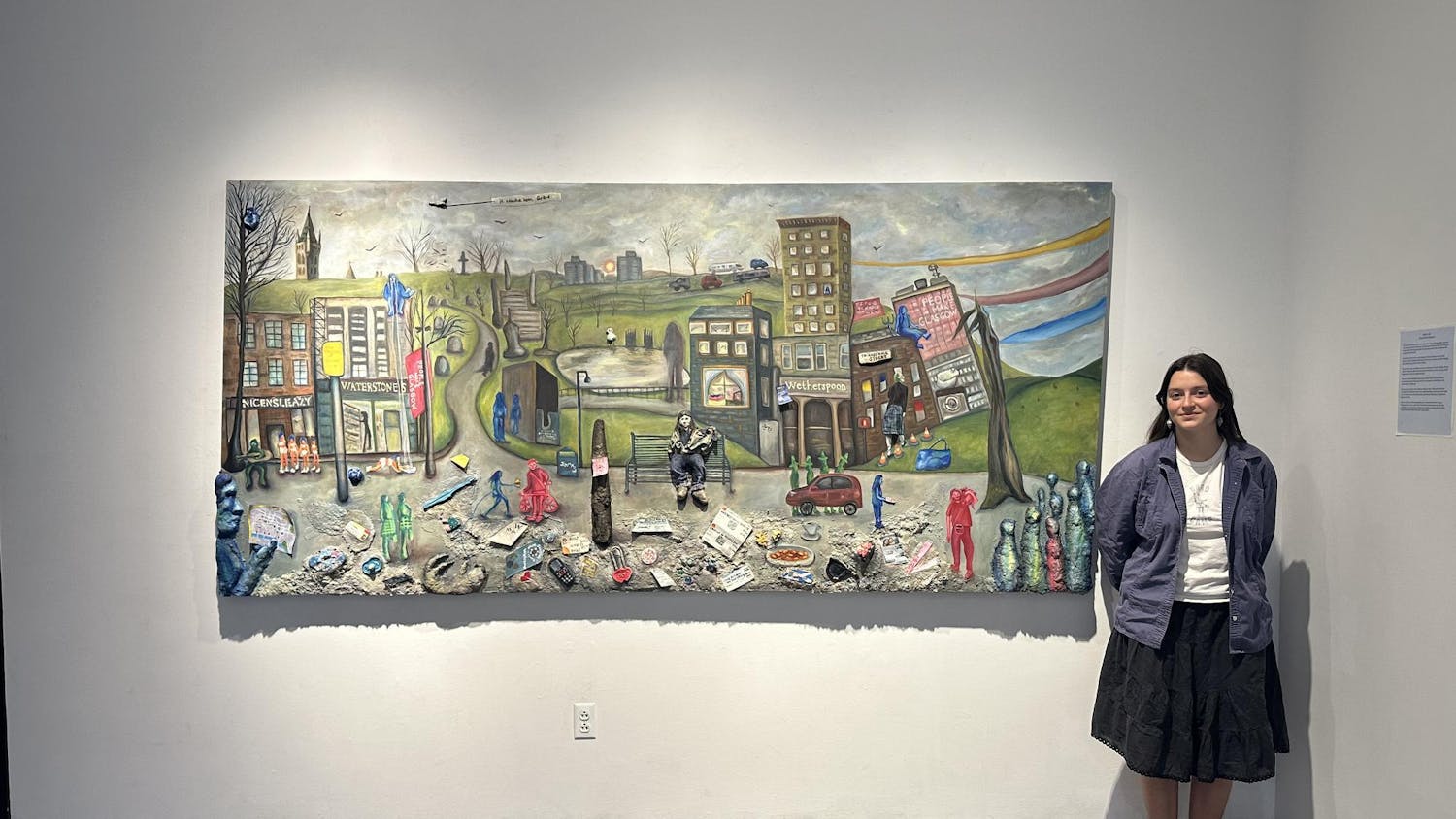"We have a problem," Ed Mazria, founder and executive director of Architecture 2030, told a nearly-full Salomon 101 during the keynote panel for the "A Better World by Design" conference Saturday. Luckily, he was speaking to exactly those who want to fix it.
The three-day conference, organized and run completely by Brown and Rhode Island School of Design students, took place on College Hill last weekend.
Known as "ABWxD" for short, the event has been held on the Brown and RISD campuses during the first weekend of October annually since 2008. According to its website, the conference "connects students, professionals, and individuals from a variety of disciplines in order to build a global community of socially conscious and passionate innovators."
Sharon Langevin '09 GS created the conference during her junior year with Steve Daniels '10 and two RISD students, she told The Herald. As members of Engineers Without Borders, she and Daniels had heard much talk of plans for similar events that never came to fruition. When the two joined the group's executive board during their junior years, they finally decided to host a lecture series, she said. What they ended up creating was far more: a multi-day event that featured numerous speakers, panelists, workshops, tours and exhibitions.
This year's ABWxD brought 13 speakers, 12 panels, eight workshops and a whole host of other activities to College Hill to promote innovative and sustainable design, technology and business practices and improve the world.
The conference was organized by a general committee of 12 Brown and RISD students selected last fall, who oversaw everything from accounting for the $75,000 cost to finding speakers and panelists, Langevin said. In addition, an advisory committee of students who had been involved with ABWxD before, including Langevin and Daniels, provided support to general committee members.
"My main goal is really to inspire students to take action," Langevin said. "I think there are a lot of students who have thought a lot about what they want to do to make a difference in the world, but don't really know how to go about it."
Conference organizers attempted to inspire as many individuals as possible by having a wide and diverse range of fields represented, including architecture, engineering, urban planning, art, design and environmental studies.
"There's really something for just about everyone," said Matt Severson '11, an advisory committee member. "Pretty much every word out of each speaker's mouth is inspiring or educational in some way."
Members of a keynote panel that took place on Saturday exemplified the diversity of areas discussed in the conference. The panel was moderated by Saul Kaplan, the founder and "Chief Catalyst" of Business Innovation Factory, a Providence nonprofit concerned with system-level solutions to various social issues.
The panelists spoke of their own work in addressing what Kaplan posed as the ultimate dilemma of addressing global issues today: "It's not about having good ideas. … It's about, how do we bring these ideas to scale?"
Entrepreneur and environmentalist Lisa Gansky, who recently published a new book titled "The Mesh," discussed the growing importance of sharing resources and items to battle problems with the environment and sustainability.
Bloom Energy Product Manager Peter Light '01 expressed concern over the inefficiency of energy production, particularly the numerous processes of transformation and transportation that current forms of energy undergo before finally being used. Bloom Energy designs technology for converting chemical energy directly into electricity to maximize utility and efficiency and address the growing demand for energy in the world today.
Vice President of Operations for Better Place Aliza Peg spoke of her company's attempts to further the "electrification" of the automobile industry and accelerate the transition from gas- to electricity-powered vehicles.
Global climate change, current U.S. unemployment and real estate crises were Mazria's main concerns. His company is attempting to address these problems with proposals to boost the U.S. building sector through tax deductions for energy-saving construction, he told the crowd.
Jeremy Jacob '12, who went to a lecture by Mazria, said he offered some "interesting solutions" to system-wide change, taking into account concrete government implementations.
Graciela Kincaid '12, who took 15 pages of notes during the various lectures and panels, said she especially enjoyed Saturday's panel on ethics and design. The conference broadened her notion of design to include a wide variety of approaches to world problems, she added.
"It's really encouraging to go to a conference like this where everyone is so passionate and so energetic and so excited. It renews whatever enthusiasm you have for global issues and solving problems," Kincaid said.




